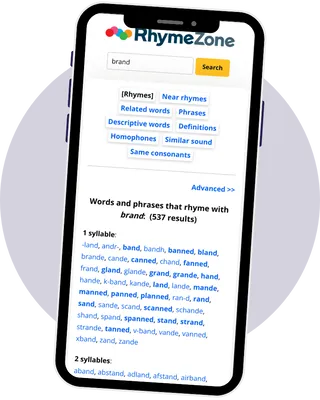
How Do You Say... Five Tools for Content Marketing Wordsmithing?
Even as marketing campaigns get more and more targeted to the right audiences, consumers still see hundreds of ads per day—maybe more. That means your ad is but a drop in a sea of ads. You have to stand out more than ever, which isn’t a simple task.
Large language models (LLMs) have become common tools that support ad writers’ endeavors, but those alone cannot replace true human creativity in marketing. If LLMs are all you use, you’ll likely cannibalize others’ creative output and use basic phrases that have been passed down from marketer to marketer for generations.
Powerful photos and graphics can grab your audience’s attention, but if the next several words behind them don’t continue to capture their concentration, you’ve lost that conversion. In other words, if you’re still using “spring into sales” or “ deals you won’t believe” or “contact us,” you’re fighting a losing battle.
5 Tools to Elevate Your Messaging
You can collect the best minds in your business to think about alternatives to the standard marketing messages everyone sees on the daily, but that’s not always feasible. People are busy. Some companies have a one-woman marketing department. Not everyone’s coworkers are poets. Thankfully, we are modern homosapiens and have plenty of resources and technologies at our disposal to develop our copywriting.
The next time you are stuck using overused marketing phrases that need to be abolished, consider leveraging one of these tools:
1. thesaurus.com
Starting with the most obvious, an online thesaurus is an incredible resource for wordsmithing. Swapping out one word for a synonym can make all the difference. “Give us a ring” or “give us a holler” shows more personality and may be more memorable than “give us a call,” as long as it fits within your brand identity. Writers certainly don’t want to abuse the thesaurus; most of the time, the most common or obvious word is best, especially when you consider voice search optimization. Everything doesn’t need to stand out or be wordsmithed—only the most important parts.
To make the most of the thesaurus as a marketing wordsmith tool, be sure to click deep, meaning don’t just choose one of the words on the first page if it doesn’t feel perfect. Click on the closest word and view its synonyms. Continue until you have the best word or have decided that the original word is ideal. Different thesauruses have different resources, so find one that works for you and play around. (Power Thesaurus is an interesting one that takes things a step further to show related words and hashtags.)
2. wordassociations.net
Sometimes what you need isn’t a synonym but a word that’s on theme, or at least related to the rest of the content. If you’ve ever played a free association exercise, in which you have to impulsively say the first word that comes to mind in response to a random word, you know that you can surprise yourself with the word you instinctively pull out of your head. Human memory is largely built on associations. It’s a powerful psychological tool!
The Word Associations Network website allows you to type in a thematic word like “marketing” and then shares dozens of other words that are related not by denotation but by association. The network chooses the options based on close pairings across media based on “similarity, contrast and contiguity.” It further breaks down its output by parts of speech: noun, adjective, verb, adverb, etc. It’s pretty useful in the right context!

3. rhymezone.com
Rhyme is one of the simplest and most effective literary tactics to ensure your words stick in your audience’s memory. It can make even the least sexy topics stay in your head. Consider the National Highway Traffic Safety Administration (NHTSA) campaign, “Click It or Ticket.” It’s entirely possible that insurance firm Nationwide cracked open a thesaurus and created their iconic slogan, “Nationwide is on your side,” in a matter of moments.
It’s critical to remember that rhyming only works if it doesn’t feel forced and makes sense. “It only takes an iota to become a fan of our soda” rhymes, but is it catchy? Does it seem natural? Do normal people use “iota” in everyday speech? Maybe, no, and no. Rhyming words tend to do better in headlines and taglines than in general marketing copy, so keep in mind that this wordsmith technique is contextual.
4. google.com
Google Search may not be the first thing that comes to mind when talking about wordsmithing, but it’s a powerful option. The search engine results page, or SERP, is a gold mine for writers looking for alternative diction. Take the People Also Ask feature, for instance. You can see how other searchers commonly phrase their questions and queries. With the Discussions & Forums feature, you can see what other people are asking and talking about related to your search.
Supercharge your Google wordsmithing with Google’s Search Lab AI tool enabled. It is an “experiment” that leverages “advanced reasoning, thinking and multimodal capabilities from Gemini 2.0” to elevate your results, essentially turning the search engine giant into a GPT. And speaking of GPTs...
5. chatgpt.com
If you’ve been under a rock for a few years, GPTs, or “Generative Pre-trained Transformers,” are LLMs, or Large Language Models, that allow you to interface with artificial intelligence to converse and ask questions. The software scours the Internet for you so you don’t have to click on every result in Google to get what you want. OpenAI’s ChatGPT has been the frontrunner for a bit, but there are plenty of others out there, too, like Google’s Gemini and Anthropic’s Claude.
Unlike the other tools in this list that require manual work, ChatGPT does it for you. All you have to do is ask. Type in the search bar to request new diction or to ask for inspiration. Your output is only limited by your input (and imagination). You can even paste in your first draft of a sentence and tell the GPT to rewrite or rephrase what you’ve created.
More Tools and Resources
The five tools above are those we use most often and recommend to our clients, but there are plenty more out there to support your marketing wordsmithing.
- Answer the Public – This free resource is essentially Google’s “People Also Ask” feature on steroids, showing you branches of searches related to your keyword or phrase.
- Cliché Finder – Aptly named, this tool allows you to paste content into a text editor and then shows you where you’ve written overused phrases so you can rewrite them.
- Grammarly – An AI-powered editing tool, Grammarly shows you stylistic and grammatical recommendations, which can also serve as inspiration in your writing.
- Moz – One of many SEO and reputation management software, Moz gives you keywords your industry and competitors are using, opening up new possibilities in your word choice.
A Wordsmithing Marketing Partner
There’s no shortage of wordsmithing tools out there to support marketers in their pursuit of standing out. The issue with tools, however, is that they require time to use. If you are not only short on words but short on time, you probably need the support of a talented marketing agency partner. (That’s us!)
Our experts excel in creative ideation and execution, so we may not need tools at all—the answer may already live in our heads or on our desktops. Either way, we will figure it out and get it done. We’re here to inspire or do the wordsmithing for you. Let’s chat and determine how we can elevate your brand today.
Cody H. Owens,
Content Director